 SELECTED
ISSUE
SELECTED
ISSUE
|
|
Leisure Management - Reduce that laundry mountain

Sustainability

|
|
| Reduce that laundry mountain
|

Spa Business investigates initiatives from linen suppliers
that enable operators to embrace sustainability
|

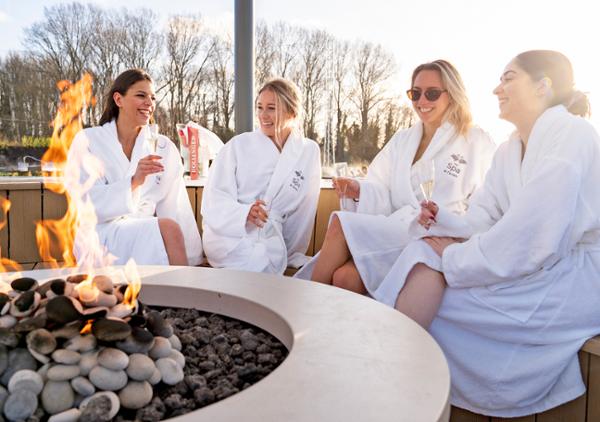
BC Softwear products require less energy to launder photo: BC Softwear/Carden Park UK
|
|
|
Behaving in a more environmentally conscious way is no longer just a nice ‘extra’. Sustainability needs to be part of every spa’s DNA, as consumers are increasingly seeking out businesses that demonstrate they’re taking steps to become more sustainable.
The World Meteorological Organisation reports record increases in sea-levels, ocean heat and greenhouse gases, while the State of the Global Climate in 2021 report – described by the UN as ‘a dismal litany of humanity’s failure to tackle climate disruption’ – shows we’re ever closer to catastrophe.
As a sector dedicated to wellness and longevity, spas should be leading the way in offering a solution and embedding sustainability into every part of their offer. The problem may be huge, but small changes make a difference and the sustainability of towels and linens – in themselves a significant cost centre – are a valid place to start.
Consider the mountain of towels, robes and linens that go through the wash each week in your spa – after salaries, laundry costs can be the biggest running expense.
We ask linen suppliers to share the eco-innovations that could help you make a genuine sustainability impact while also saving on your costs.
|
Cinzia Imberti Beltrami
CEO, Beltrami Linen
In the last three years we’ve noticed a steady increase in the sale of our birch wood products, which we believe is an important sign for a better future.
Our Autentica Fibra di Legno Beltrami range of sheets and towels is made from innovative Fibra di Legno yarn, obtained from birch wood sourced from certified forests in Northern Europe.
A sustainable and environmentally friendly process, Autentica Fibra di Legno Beltrami melds nature and technology to create sustainably luxurious linens.
www.beltrami.it
“Our range of sheets and towels is made from birch wood yarn sourced from certified forests in Northern Europe”
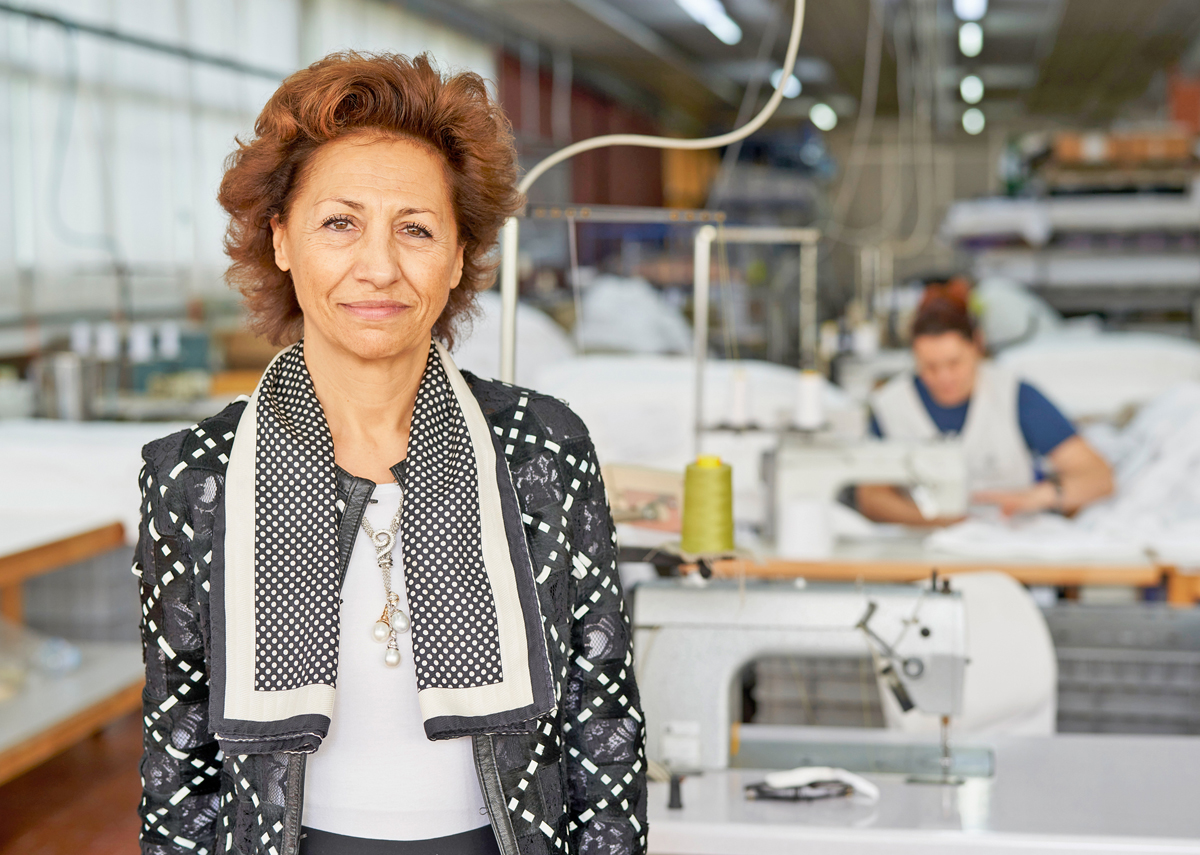
Beltrami Linens are made from sustainable yarn sourced from birch wood / photo: Beltrami Linen
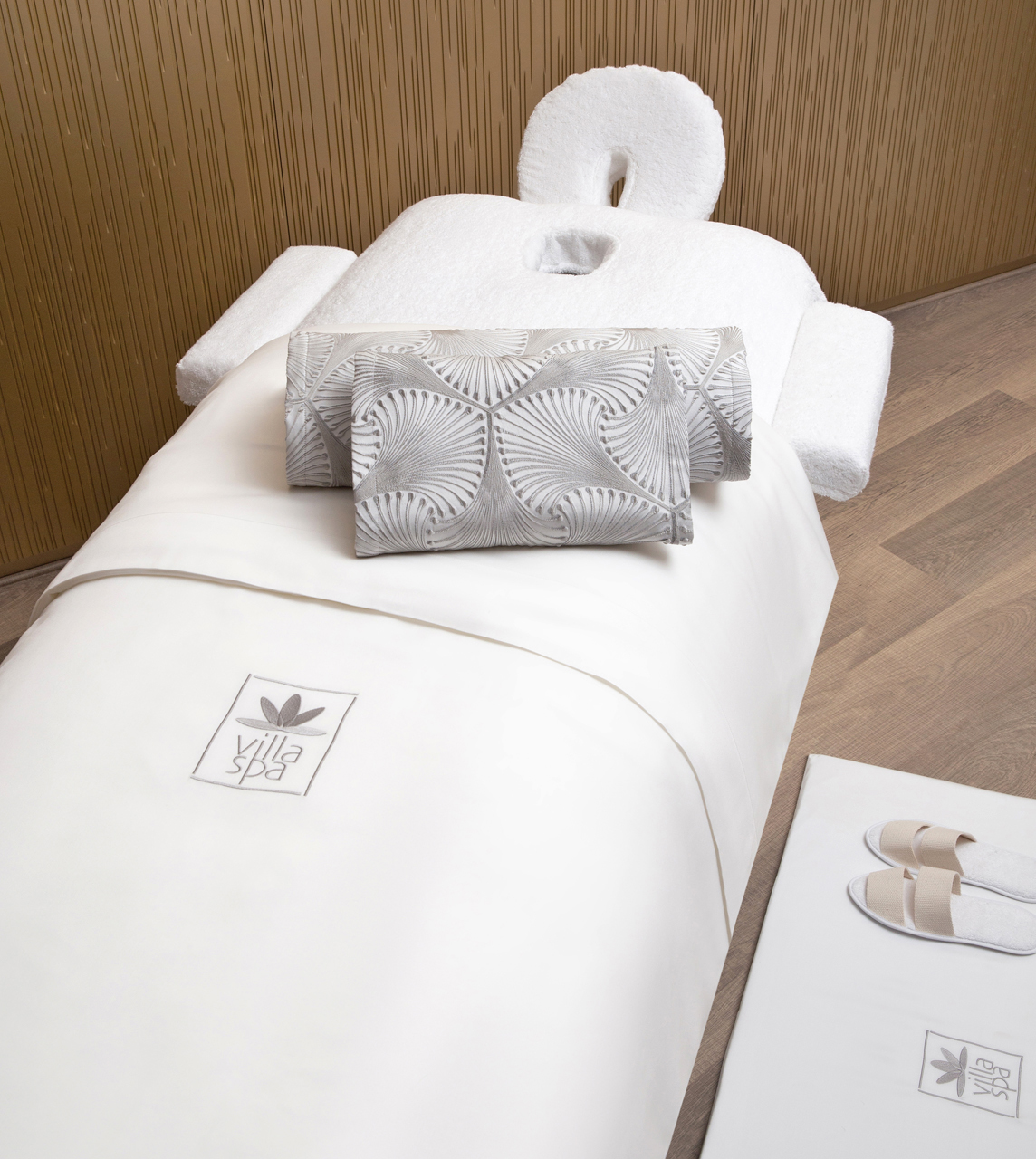
The Autentica Fibra di Legno Beltrami is a range of luxurious spa-grade linens / photo: Beltrami Linen
Gilad Lang
Gilad Lang
Vice president, The Madison Collection
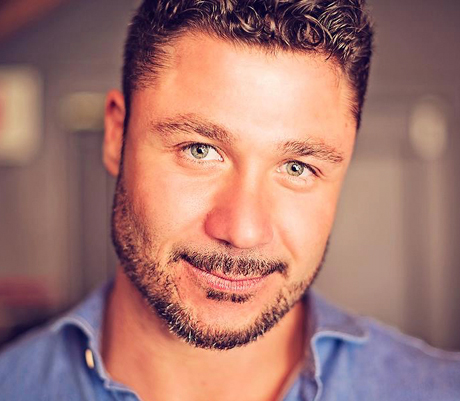
Gilad Lang / photo: Madison Collection
In the past 12 months, due to raw cotton shortages, there’s been pressure to mix plastic, synthetic or microfibres with cotton to make robes and towels, but we’ve resisted this trend. Our green manufacturing practices pre-date much of the ‘green bandwagon’ and we remain committed to never using microfibres or any other synthetic/plastic blend.
Microfibres are the single most detrimental thing for our environment – machine washing just one garment can flush 1,900 particles into our water supply. In the last 12 months alone, we’ve prevented millions of microplastics from entering our waters.
Our luxurious Bordado and Tuxedo towel collections require 40 per cent less water and electricity to launder and as they’re highly absorbent and quick-drying (at 300gsm), spas also report their guests use up to 50 per cent fewer towels.
We’re currently working on creating them at 270 gsm with laundering innovations to make further strides in new eco luxury terry.
www.themadisoncollection.com
“Microfibres are the most detrimental thing for our environment – machine washing one garment can flush 1,900 particles into the water supply”
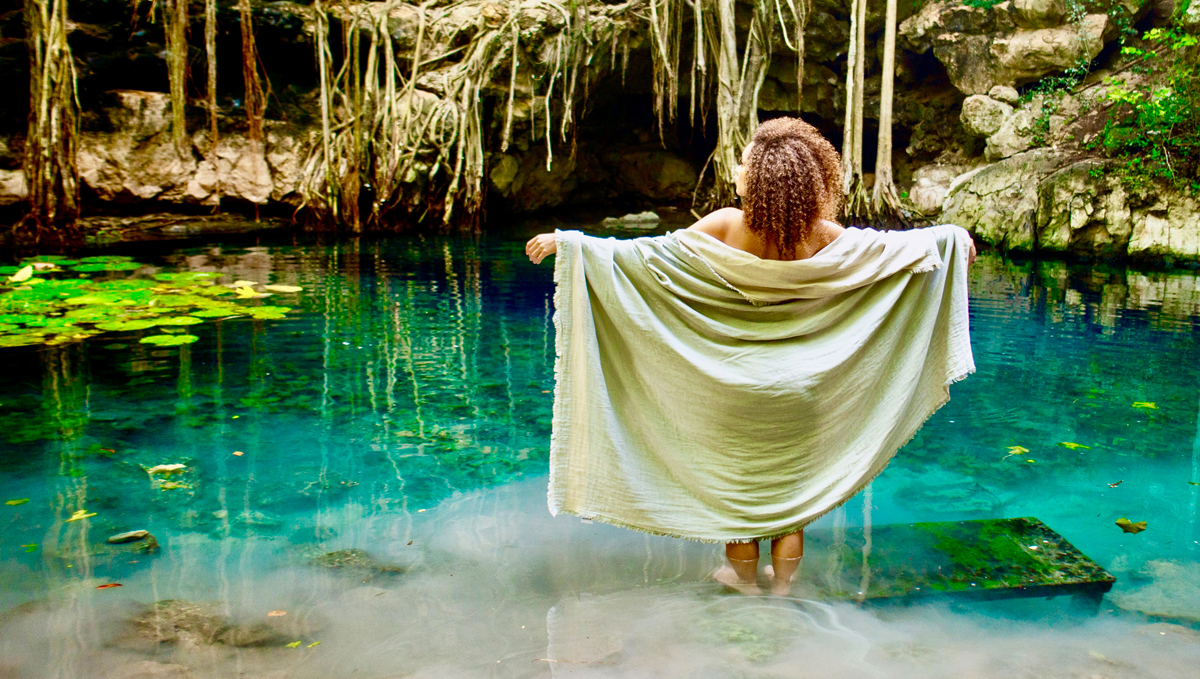
The 300gsm luxury towels are quick drying / photo: Madison Collection
Jon Balladon
Sales director, Hartdean

Jon Balladon / photo: Hartdean
Hartdean has always manufactured products with the aim of reducing energy consumption and reducing carbon emission.
The goal remains to offer customers a choice between traditional textiles or a better, greener solution that has added benefits, far beyond a traditional robe or towel. Each of our ranges offers unique and specific energy and water saving properties, that a 100 per cent cotton woven towel or robe cannot.
Our EcoKnit Spa range is snag-free which saves, on average, 60 per cent energy consumption, while being more durable and long-lasting.
www.hartdean.com
“Each of our ranges offers energy and water saving properties that 100% cotton cannot”
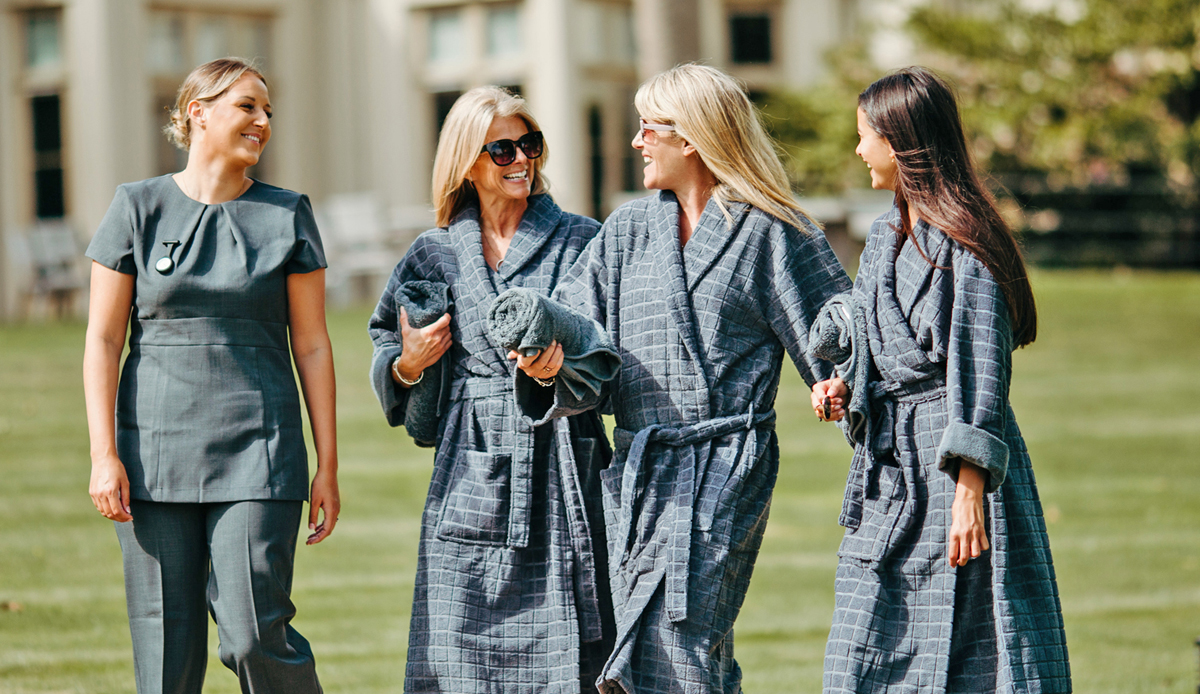
The EcoKnit range is snag-free to extend its lifespan / photo: Hartdean
Mia Richardson
Founder, Comphy

Mia Richardson / photo: Comphy
We consider environmental kindness an essential component of what it means to live truly well. For that reason, since our inception in 2003, we’ve made minimising our carbon footprint and leaving behind a healthier planet a priority.
We’re a certified Sustainable Furnishings Council member, pledging to take immediate steps to minimise carbon emissions, waste stream pollutants and un-recyclable content.
Comphy is committed to removing plastic from all its retail packaging this year. Additionally, we’ve removed all vinyl packaging, we’re recycling all vinyl and cardboard that comes with our products and we are using the scraps from our sheeting to create reusable bags for retail.
We use microfibre, an alternative to cotton, hemp and bamboo, because commercially grown cotton uses millions of tons of water and 20 per cent of the world’s pesticides to produce. Microfibre represents the majority of the world’s fabric usage, but uses only one per cent of fossil fuel demand.
A true sustainability test is how much water is used in the making and care of linens. One acre of cotton requires 25,000 tons of water, whereas the same amount of Comphy microfibre requires just four tons.
www.comphy.com
“Growing an acre of cotton requires 25,000 tons of water – production of the same amount of the microfibre requires just four”
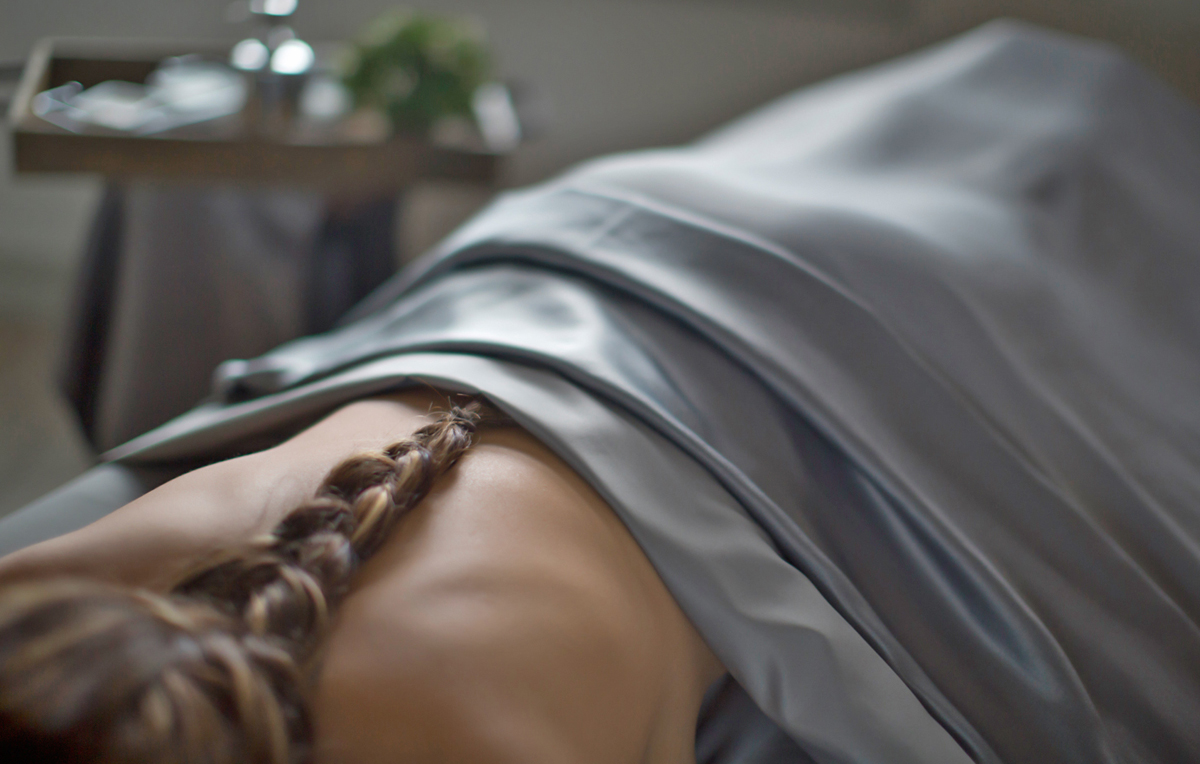
Microfibre production uses far less water / photo: Comphy
Guniz Alkan
President and co-owner
A la Turca

Guniz Alkan / photo: Al la Turca Textiles
Our Pestemal towels make a tangible environmental impact. Made from traditional thin woven cloth, used for centuries in Turkish baths, when used in place of terry cloth towels in spas the energy saving impact is considerable.
Considering the average commercial washing machine can launder 8kg of terry towels per cycle (around 11 towels), this load equates to 22 Pestemal towels in comparison. As the same washing machine uses approximately 35,000 gallons of water and 910 kWh electricity per year – the savings are obvious.
The drying time for Pestemal towels provides yet further savings. An average commercial dryer takes about 30 minutes to dry 8kg of terry towels. The same weight of Pestemals takes just 10-12 minutes to dry.
It is hard to dispute the benefits of switching.
www.alaturcatextiles.com
“A commercial dryer takes 30 minutes to dry 8kg of terry towels. The same weight of Pestemals takes 10-12 minutes”
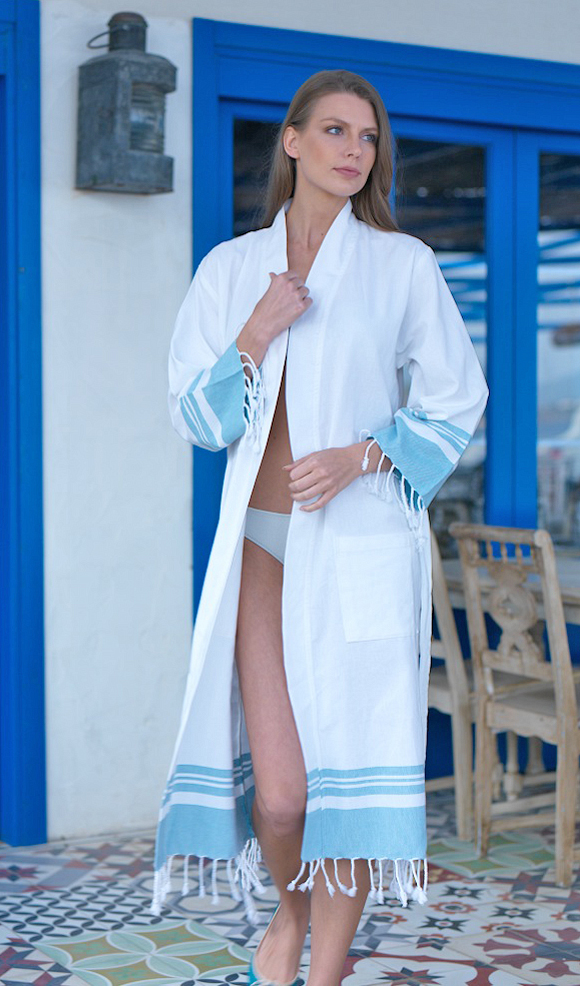
In the light of rising energy costs,
Pestemal can create savings for spas / photo: Al la Turca Textiles
Barbara Cooke
CEO and founder
BC SoftWear
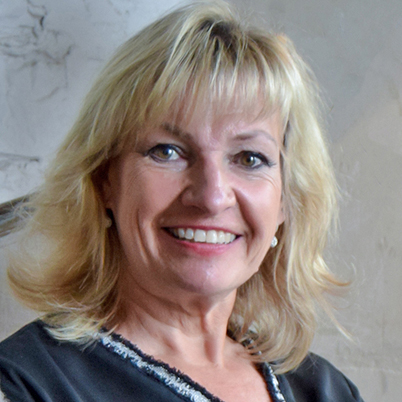
Barbara Cooke / photo: BC SoftWear
Our team has noticed a shift towards spas seeking more sustainable options in the last year, with increased requests for environmentally-friendly ways to meet towelling needs that don’t compromise on quality.
The International Tourism Partnership states the hospitality sector must reduce its carbon footprint by 90 per cent before 2050 to keep global warming below the two-degree threshold enshrined in the Paris Agreement. With energy saving high on the agenda, BC SoftWear’s SmartSoft range of eco-friendly towels is a sustainable option for busy spas managing a high turnover of clients.
This range includes SupremeSoft robes and spa linens, which require 70 per cent less energy to launder when compared with a traditional towel, as well as needing 10 per cent less water and 31 per cent less drying time, while SmartKnit towels and are made using knitted technology, rather than traditional weave, which means they’re snag-free, aiding longevity.
BC SoftWear considers the environmental impact of everything; from factory operations to plastic-free packaging. Coir spa slippers are biodegradable and a popular choice, and the company has moved to using paper wraps and cornstarch for packaging, saving 50 tonnes of single-use plastic a year. The factory is powered by solar panels, while its water treatment plant reuses waste water.
The company works with Reskinned – a specialist in recycling end-of-life textiles and footwear that turns textiles, such as towels that are no longer fit for purpose, into recycled yarn, which is then used in other textiles. We’re now working to introduce each of our hotel partners to this recycling option including flip flops and slippers. It’s our way of supporting the circular economy.
www.bcsoftwear.co.uk
“The International Tourism Partnership says the sector must reduce its carbon footprint by 90% before 2050”
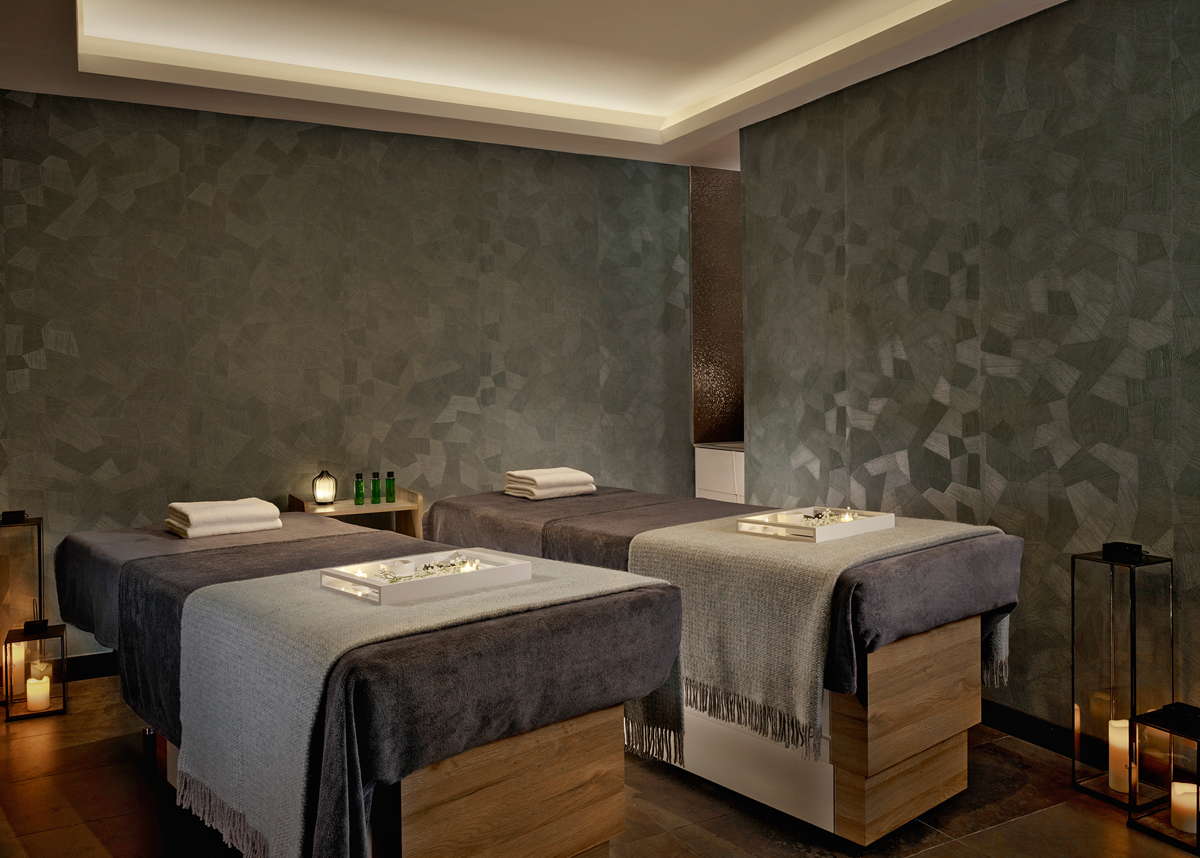
BC Softwear offers sustainable solutions to the problem of excess wastage / photo: BC SoftWear
Robert Cooper
Managing director,
Scrummi Spa
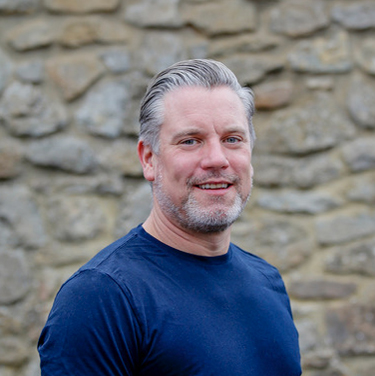
Robert Cooper / photo: Scrummi Spa
Our products were created sustainably 13 years ago. However, we realised there was too much single-use plastic in some of our packaging, so we’ve removed it from 80 per cent of our products and have a target to be 100 per cent plastic free by 2023.
By using Scrummi single-use products within treatments, spas reduce their towel laundry by up to 90 per cent, with no loss of comfort or luxury.
Our single-use towels biodegrade in 12 weeks and are fully compostable. The energy used in the entire lifecycle of a Scrummi spa towel, including its manufacture, is less than the energy used by machine washing a single cotton towel once.
Our customers report clients also love the enhanced hygiene and reassurance that their towel has never touched another person. And for every cotton towel replaced with a Scrummi, spas save up to 90 per cent on contaminated waste water and electricity from the laundry process. We’re now also working to set up a composting network for our clients.
www.scrummispa.com
“Our single-use towels biodegrade within 12 weeks and are fully compostable”
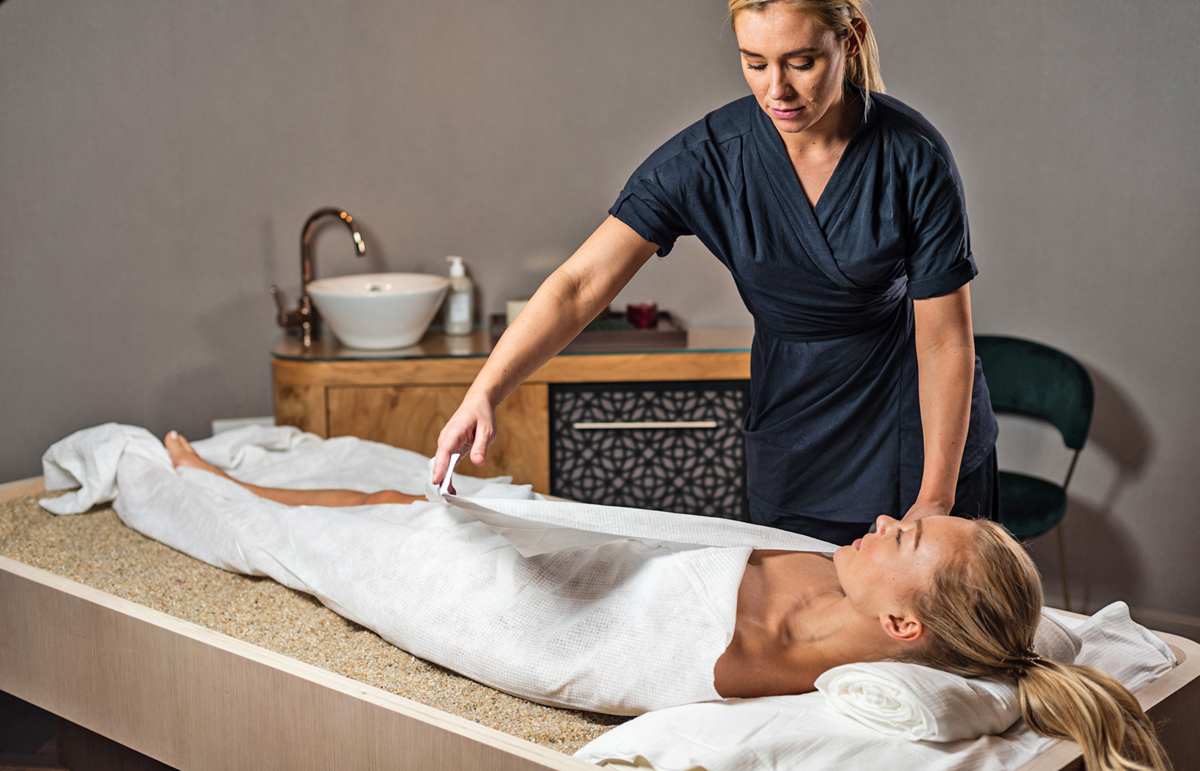
Operators can improve their carbon footprint / photo: Scrummi Spa
Sam Landsman
President
Majestic International
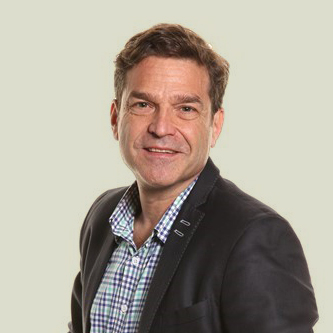
Sam Landsman / photo: Majestic International
Incredibly luxurious, Majestic’s EarthRight collection is made of 100 per cent organic, long-staple cotton. It requires 10-20 per cent less drying time and saves about 30 per cent in water consumption.
In addition, we offer a fully biodegradable and compostable slipper that’s 100 per cent cotton terry upper, with a jute and plant-based sole so it can go into the compost bin.
This is so important, as spas go through thousands of slippers a month and the innersoles are filling our landfills.
We’re looking into packaging alternatives that still protect linens, while being sustainable and have found a bag made from corn-starch that we’re testing. In the interim, for our robes, we’ve converted to a half plastic front bag with a mesh back that can be re-purposed as a laundry bag or a catch-all for the consumer.
www.majesticinternational.com
“Majestic’s EarthRight collection requires 10-20% less drying time and saves about 30% in water consumption”
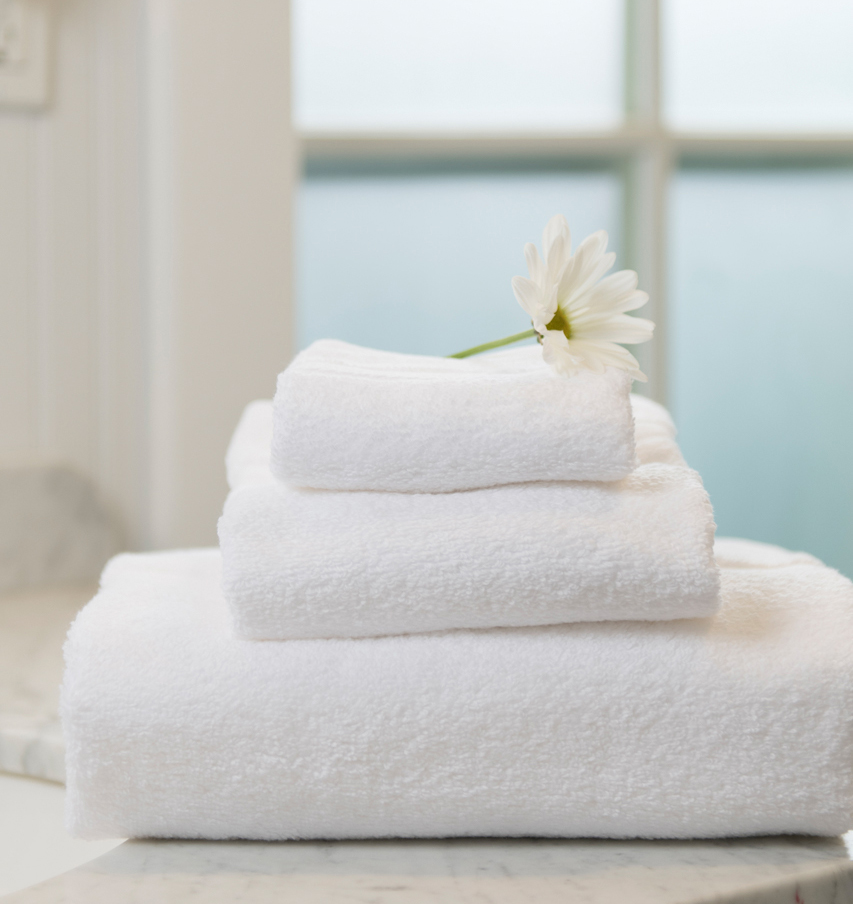
Majestic supplies organic towels and compostable slippers / photo: Majestic International
|
|
 |
| Originally published in Spa Business 2022 issue 2
|
|
 |
|